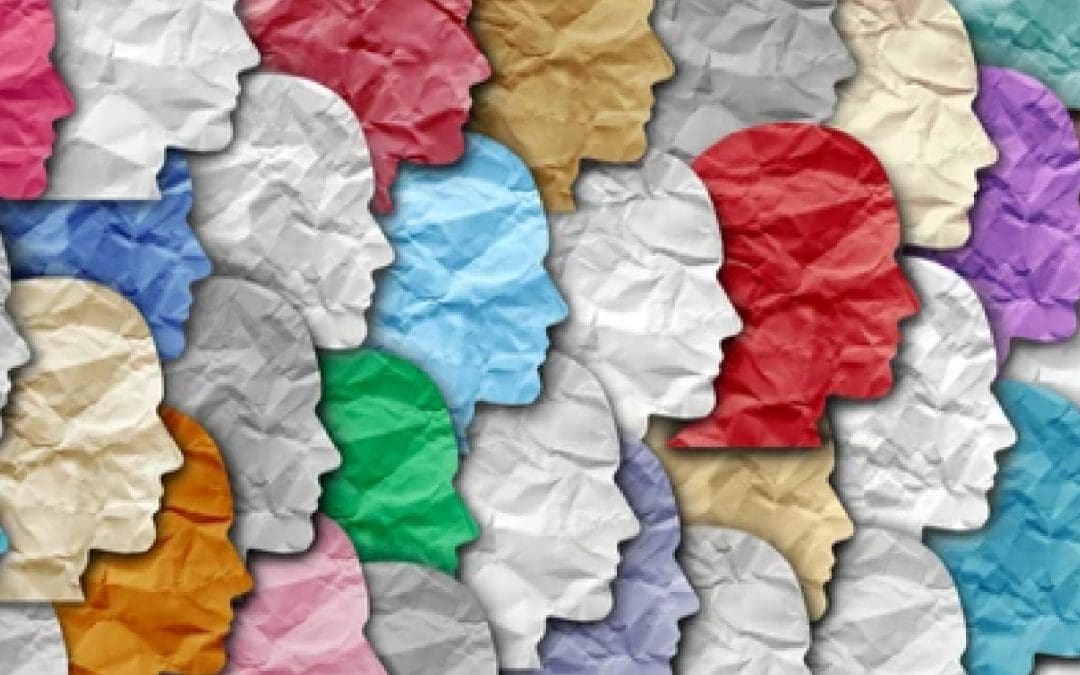There are different types of schizophrenia that are used as classifiers to help millions of Americans receive a proper diagnosis each year. But despite how common these issues are, many people don’t receive the proper mental health treatment for them to manage their daily symptoms. Because of this, individuals often face increased risk of worsening symptoms. If you or a loved one is struggling with one of the different types of schizophrenia outlined below, now is the time to get help.
What Is Schizophrenia?

Schizophrenia doesn’t refer to one single disorder. Rather, it’s used to refer to a spectrum of conditions that include a variety of psychotic symptoms. But the different types of schizophrenia are all considered chronic mental disorders characterized by a variety of symptoms in addition to the experiencing either delusions or hallucinations. Despite the differences, symptoms make it difficult to participate in everyday activities, control emotions, think clearly, and interact with others.
Symptoms of the Different Types of Schizophrenia
Although every type of schizophrenia or classifier is determined by the most prominent symptoms, the schizophrenia spectrum is characterized by the wide range of symptoms featured below. Keep in mind that many of these symptoms overlap with other classifiers or even other disorders.
Psychotic symptoms affect the way you think, behave, and experience the world around you. These symptoms can come and go or become stable over time. However, they distort reality. Psychotic symptoms include:
- Hallucinations
- Delusions
- Thought disorder
- Movement disorder
Negative symptoms interfere with your motivation and interest in activities, and impact emotional expression, and the ability to function. Negative symptoms include:
- Trouble planning and carrying out activities
- Trouble anticipating emotions and feeling pleasure
- Speaking in a dull voice and showing limited facial expressions
- Avoiding social interaction or acting in a socially awkward manner
- Having low energy and participating in passive activities
- In extreme cases, someone can experience catatonia
Cognitive symptoms relate to your ability to concentrate, pay attention, and your working memory. These symptoms affect conversational abilities and remembering things. This is one of the biggest indicators of your ability to function. Cognitive symptoms include:
- Trouble processing information
- Inability to make decisions
- Trouble applying new information
- Inability to focus or pay attention
Risk Factors
While there isn’t a confirmed cause for the different types of schizophrenia, these factors have been linked to a higher risk of developing or triggering symptoms of the disorder:
- Genetics or family history
- Brain structure or function
- Pregnancy or birth complications
- Taking mind-altering drugs in adolescence
- Environmental factors including chronic stress or illness
What Are the Different Types of Schizophrenia?
Diagnosing schizophrenia can be a challenge. This is because mental health professionals may not be able to see all of the symptoms a patient is experiencing. Potential substance use can also make it more difficult to identify symptoms stemming from the disorder alone. Moreover, the Diagnostic and Statistical Manual of Mental Disorders (DSM) no longer includes the different types of schizophrenia in the newest edition because many symptoms overlap and subtypes of schizophrenia can change throughout someone’s lifetime.
However, the subtypes of schizophrenia provide specifiers for a diagnosis and can help determine the right treatment plan according to the symptoms you experience. People with schizophrenia tend to be diagnosed between the ages of sixteen and thirty or after the first episode of psychosis. While signs may appear much sooner, this is often the first major indication of the disorder. Starting treatment after a psychotic episode is essential for recovery.
In order to be diagnosed with schizophrenia, at least one of your symptoms must include delusions, hallucinations, or disorganized speech. Moreover, these symptoms must interfere with different aspects of your daily life. Additionally, they must persist continuously for a minimum of six months. Mental health professionals can help you receive the diagnosis and treatment you need to manage your symptoms for the different types of schizophrenia.
Paranoid Schizophrenia
Paranoid schizophrenia is the most commonly diagnosed and represented form of the disorder. It’s characterized by intense and unreasonable suspicion. For example, this can manifest in the belief of constantly being followed or watched. Individuals become preoccupied with a delusion and experience auditory and visual hallucinations that confirm the suspicions. Delusions and hallucinations are considered positive symptoms, meaning they are changes in thoughts and feelings that are “added” to one’s experiences.
Disorganized Schizophrenia
Also referred to as hebephrenic schizophrenia, this type of schizophrenia is primarily characterized by cluttered or chaotic symptoms. This includes disorganized speech and disorganized behavior. With this type of schizophrenia, you may have difficulty starting and finishing tasks, acting appropriately in social situations (known as flat affect), and have a tendency to speak incoherently. You must exhibit all of the symptoms of this subtype to receive a diagnosis.
Catatonic Schizophrenia
This type of schizophrenia is less frequently diagnosed than in the past because it’s believed to be a result of untreated schizophrenia. It frequently presents itself through prolonged immobility but is also characterized by excessive movement. What does that look like, exactly? An individual with this subtype will sit motionlessly in rigid positions, bizarre posturing, and mutism. However, individuals can also engage in purposeless movement that includes mimicking behavior, waving, and nail-biting. Many of these symptoms fall under the category of negative symptoms.
It’s important to keep in mind that catatonia can be present as a symptom of other disorders, including bipolar disorder. As a result, it’s considered a classifier for mood disorders rather than one of the different types of schizophrenia.
Undifferentiated Schizophrenia
This category exists for those who don’t fit into one specific category. You may exhibit the symptoms of different types of schizophrenia without being limited to a single type. For instance, you may experience delusions and hallucinations but also exhibit catatonic behavior. Of the different types of schizophrenia, this can be particularly challenging to diagnose since it does not stay within clearly defined categories.
How Drugs and Alcohol Affect Different Types of Schizophrenia
All the types of schizophrenia outlined above come with specific challenges. But these challenges can be more difficult to manage when combined with substance abuse. Many individuals struggling to manage the symptoms of their mental health disorder turn to alcohol and drugs to cope. However, substances only worsen or exacerbate symptoms in the long run. In this scenario, dual diagnosis treatment is the best option for recovery.
Unfortunately, symptoms of schizophrenia mimic symptoms of substance abuse, making it difficult for some people with schizophrenia who have a substance use disorder to find the proper diagnosis for co-occurring disorders. As a result, they may not receive the proper dual diagnosis treatment. In situations like this, clear, professional diagnosing is key to addressing the different types of schizophrenia and co-occurring substance abuse.
Treatment Options for the Different Types of Schizophrenia

The American Psychiatric Association recommends two types of treatment options for all types of schizophrenia. This includes therapy and medication. Most cases of the disorder are severe, which means that it requires lifelong treatment to manage everyday symptoms. With this in mind, seeking treatment is the first step in helping you improve your daily functioning.
At the Willough at Naples, you would benefit from adult psychiatric services. This intensive program provides a safe and secure environment for you to begin improving your mental wellness. Your professional counseling team will ensure all of your mental and physical needs are met while under their supervision.
In addition, you will undergo an assessment to evaluate your medication needs. Your team will work with you to help you start the right antipsychotic medication according to your symptoms. While medication may play a role in your recovery, you can also benefit from a variety of therapy modalities including group therapy, family therapy, and counseling for co-occurring disorders if you’re also battling addiction.
Start Recovery Now
Understanding the symptoms and diagnostic criteria of the different types of schizophrenia is the first step in helping you make the most informed decision about your mental wellness. Now all you have to do is enroll in a treatment center that provides the level of care you need. The medical professionals at The Willough at Naples are here to help you overcome the challenges of your disorder through every phase.
If you have any additional questions about our treatment options, call us at (239) 688-3063 or fill out our full patient contact form online. Our priority as a treatment center is to help you live a fulfilling life in spite of your mental health disorder.

